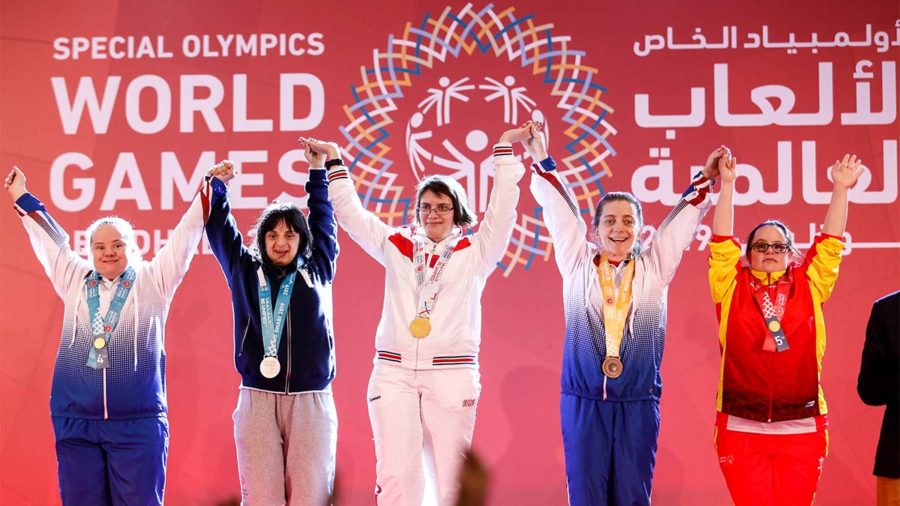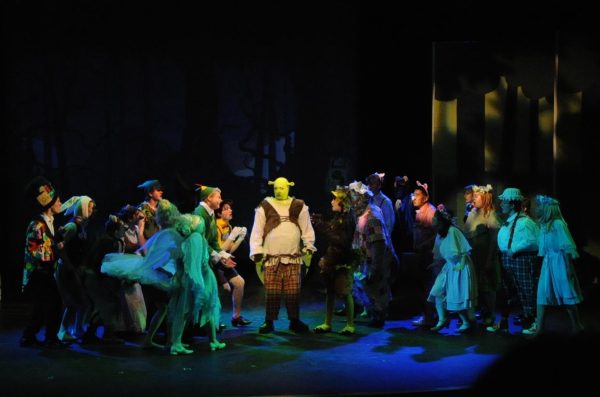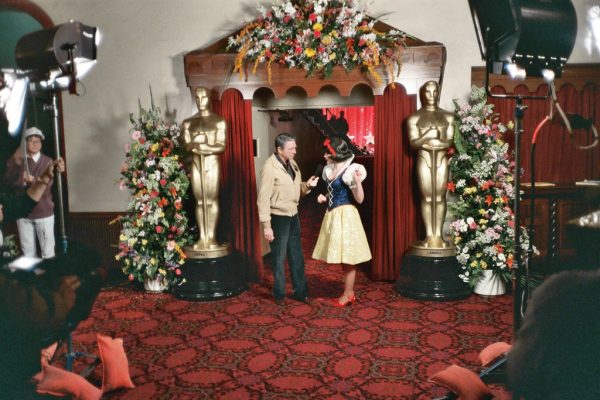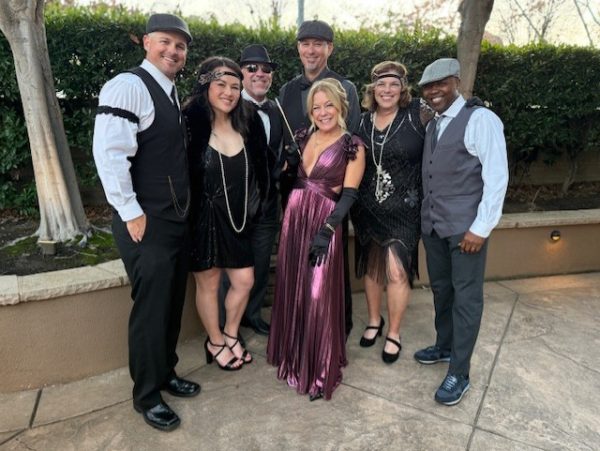Special Olympics: Fiery Exchanges and Funding Disagreements
Athletes show their emotions when receiving their medals during declaration ceremony at the Special Olympics World Games in Abu Dhabi National Exhibition Centre. Special Olympics is a worldwide organization which organize sports competitions for people with learning difficulties. Summer World Games take place every 4 years. 7500 athletes from nearly 200 countries compete in 24 Olympic Sport disciplines in Abu Dhabi Games in 2019. (Photo by Dominika Zarzycka/NurPhoto via Getty Images)
Through the power of sports, people with intellectual disabilities discover new strengths and abilities, skills and success. These athletes find joy, confidence and fulfillment — on the playing field and in life from their experiences. They also inspire people in their communities and elsewhere to open their hearts to a wider world of human talents and potential.
The Special Olympics remains just as vital as it was five decades ago in 1968, and their mission remains the same to strive to create a better world by fostering acceptance and inclusion of all individuals.
Since Lyndon B. Johnson took office, the Special Olympics has been accepted, funded, and promoted by presidents with the mission of achieving nationwide acceptance and excitement for Special Olympics. This mission was achieved and has exceeded beyond anyone’s imagination at the time.
With the intentions of continuing their success, Special Olympics relies on their funding from multiple sources to strive and change lives, as they are a nonprofit organization and could not have made it this far without the aid of public resources.
As of March 27th, 2019, the Secretary of Education Betsy DeVos announced the proposal to decrease the funding for Special Olympics by 12%. With a Democratic house this year, this budget proposal did not proceed smoothly, as DeVos received harsh backlash. Her defense became that “while the Special Olympics is an “awesome” organization — and one that she has donated some of her salary to — it is also important to keep federal spending in check.” Diving deeper into this, however, the Dick and Betsy DeVos Family Foundation, which doles out tens of millions of dollars to her and her husband’s favorite causes, has given just $1,000 (or 0.006 percent of the funding she wants to cut) to the Special Olympics of Michigan since 2001, according to its filings with the IRS.
Since this proposal, multiple individuals from the community — both famous donators, parents, and the athletes themselves have come out to express their concerns and retaliations to her plan. DeVos insists her point must be taken economically and not emotionally. “As I said then, and I’ll say again, we had to make tough choices and decisions around the budget priorities,” Ms. DeVos told Richard J. Durbin of Illinois, the Senate’s No. 2 Democrat. She even went on to tell him in a fiery exchange to “not use disabled children in a twisted way for your political narrative,” New York Times.
With a past of rejecting previous attempts of similar budget cuts, Congress has expressed their disagreement and have made similar arguments in the past. As the clashing back and forth continued for days, President Donald Trump has stayed behind the scenes, absorbing the information that he has received from DeVos, Congress, and the public. On April 1st, 2019, Trump came out to say the following: “The Special Olympics will be funded. I just told my people, I want to fund the Special Olympics and I just authorized a funding of the Special Olympics,” Trump told reporters at the White House before departing for a rally in Michigan.
He continued, “I’ve been to the Special Olympics. I think it’s incredible and I just authorized a funding. I heard about it this morning. I have overridden my people. We’re funding the Special Olympics.” Since this announcement, DeVos has expressed that she “is glad they see eye to eye”.
The fact that DeVos voices her opinion versus the opinion of the President as the same is not accurate by any means, critics labelled this occurrence as a way to protect herself from the backlash she knew would come from individuals who disagreed with her perspective on the matter.
As this process causing so much drama and outrage, Congress has overridden it all. Since 2017, Congress has added an additional 5 million dollars to the Special Olympics portion of funds, 2.5 million being in 2019.
The entire budget proposal, clash, and solution has had its toll on the public as well as Special Olympics themselves. If the public needs inspiration to support and fight for this program, they need only look to the Special Olympics athlete’s motto: “Let me win, but if I cannot win, let me be brave in the attempt.”











